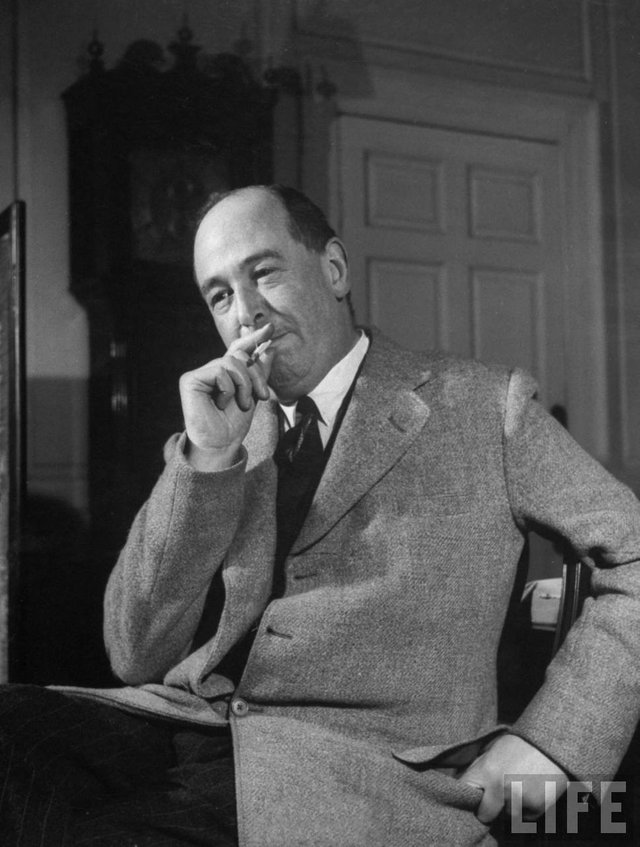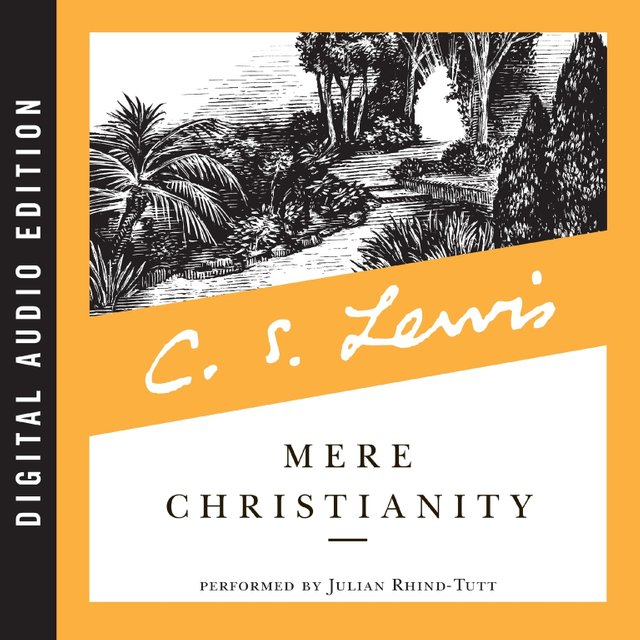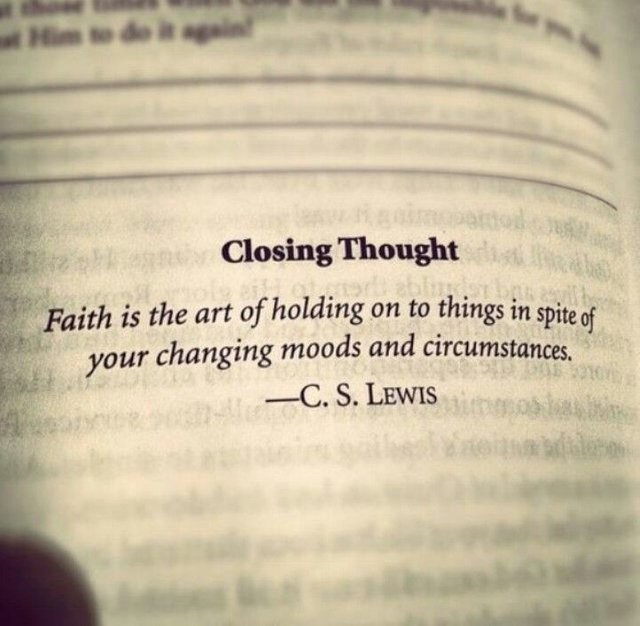
CS Lewis has always been a hero of mine, ever since I first attended Church and began to doubt my doubts, and began to ask "can faith and intellect stand hand in hand?".
Lewis' Mere Christianity was one of my first exposures to Christian apologetics, and therein for the first time I heard intelligent, thoughtful defense of Biblical doctrine and Christian faith. Listening to Lewis, for me was the point where the growing, inexplicable faith inside me, began to meet foundation upon the strength of authority and reason.

In Lewis, for the first time, I heard someone clearly articulate, intelligent, and thoughtful considering the legitimacy of belief in the metaphysically generally, and Jesus Christ as Lord specifically and I was encouraged.
His essays shook my confidence in skepticism, and encouraged my continued consideration of faith in Jesus, which ultimately through prayer, scriptural studies, and review of respected counter punchers like Dawkins, Hitchens and Harris lead me to a genuine and deep faith in the Christian God.
Lewis was a genius and, whether you're Christian or not, his works are a joy to read but beyond pleasure I enjoy sharing his content and discussing his contentions because I feel as he did, that reason, authority and experience are the ways we arrive at knowledge. So hopefully your reading his works might help you, in part, "know" God. Of course knowing God is not accomplished by pure human strength of will, because our committment to what we know if fickle, and we can be brought to believe or disbelieve on any point, depending on our mood, or the moment. Therefore, as Lewis argued, and as is cited below, knowing is worth while but not enough, we must strive to know all we can hope to know, through the strength of reason, authority and experience humanity has, but also we must admit that part of knowing that which is worth knowing, is to give ourselves up to God, asking His strength and power to hold genuine knowledge, faithfully, so as to not be shaken into needless unbelief.

Excerpts from, C.S. Lewis, Religion: Reality or Substitute?
“There are things, say in learning to swim or climb, which look dangerous and aren’t. Your instructor tells you it’s safe, you have good reason from past experience to trust him, perhaps you can even see for yourself by your own reason that it is safe. But the crucial question is will you be able to go on believing this when you actually see the cliff edge below you, or actually feel yourself unsupported in the water. You will have no rational grounds for disbelieving; it is your senses and your imagination that are going to attack belief. Here, as in the New Testament, the conflict is not between faith and sight. We can face things that we know to be dangerous, if they don’t look or sound too dangerous, our real trouble is often with things we know to be safe but which look dreadful. Our faith in Christ wavers not so much when real arguments come against it as when it looks improbable, when the whole world takes on that desolate look, which really tells us much more about the state of our passions and even our digestion, than about reality.
When we exhort people to faith as a virtue to the settled intention of continuing to believe certain things, we are not exhorting them to fight against reason. The intention of continuing to believe is required because, though reason is divine, human reasoners are not. When once passion takes part in the game, the human reason, unassisted by grace, has about as much chance of retaining its hold on truths already gained as a snowflake has of retaining its consistency in the mouth of a blast furnace.
The sort of arguments against Christianity which our reason can be persuaded to accept at the moment of yielding to temptation are often preposterous, reason may win truths, without faith she will retain them just so long as Satan pleases. There is nothing we cannot be made to believe or disbelieve. If we wish to be rational, not now and then but constantly, we must pray for the gift of faith, for the power to go on believing not in the teeth of reason, but in the teeth of lust and terror, and jealousy and boredom and indifference that which reason, authority or experience, or all three, have once delivered to us for truth.
And the answer to that prayer will perhaps surprise us when it comes, for I am not sure afterall whether one of the causes of our weak faith is not a secret wish that our faith should not be very strong. Is there some reservation in our minds, some fear of what it might be like if our religion became quite real? I hope not, God help us all and forgive us.”
C.S. Lewis, Religion: Reality or Substitute?

As always, thank you for your time and attention. I hope this post was a challenge and a blessing to you, I know it has been for me. If you have any questions or comments I always enjoy reading and responding so please be sure to share your thoughts below.
Have an awesome day, God bless you and yours.

CSLewis recognized for his fiction novels, especially for the Devil's Letters to his nephew, The Chronicles of Narnia and the Cosmic Trilogy, also for his essays mostly in book form, such as Mere Christianity, Miracles and The Problem of Pain, between others. He is already an author little less than indispensable for the Christian of today. How wonderful it is to remember all this.
Downvoting a post can decrease pending rewards and make it less visible. Common reasons:
Submit
Verdad. El es mi favorito.
I love the way Lewis describes Heaven in the final book of Narnia, The Last Battle (1956).
Downvoting a post can decrease pending rewards and make it less visible. Common reasons:
Submit
This is friend, I share your opinion.
Downvoting a post can decrease pending rewards and make it less visible. Common reasons:
Submit